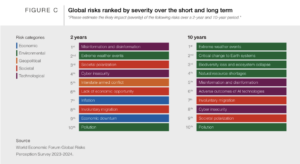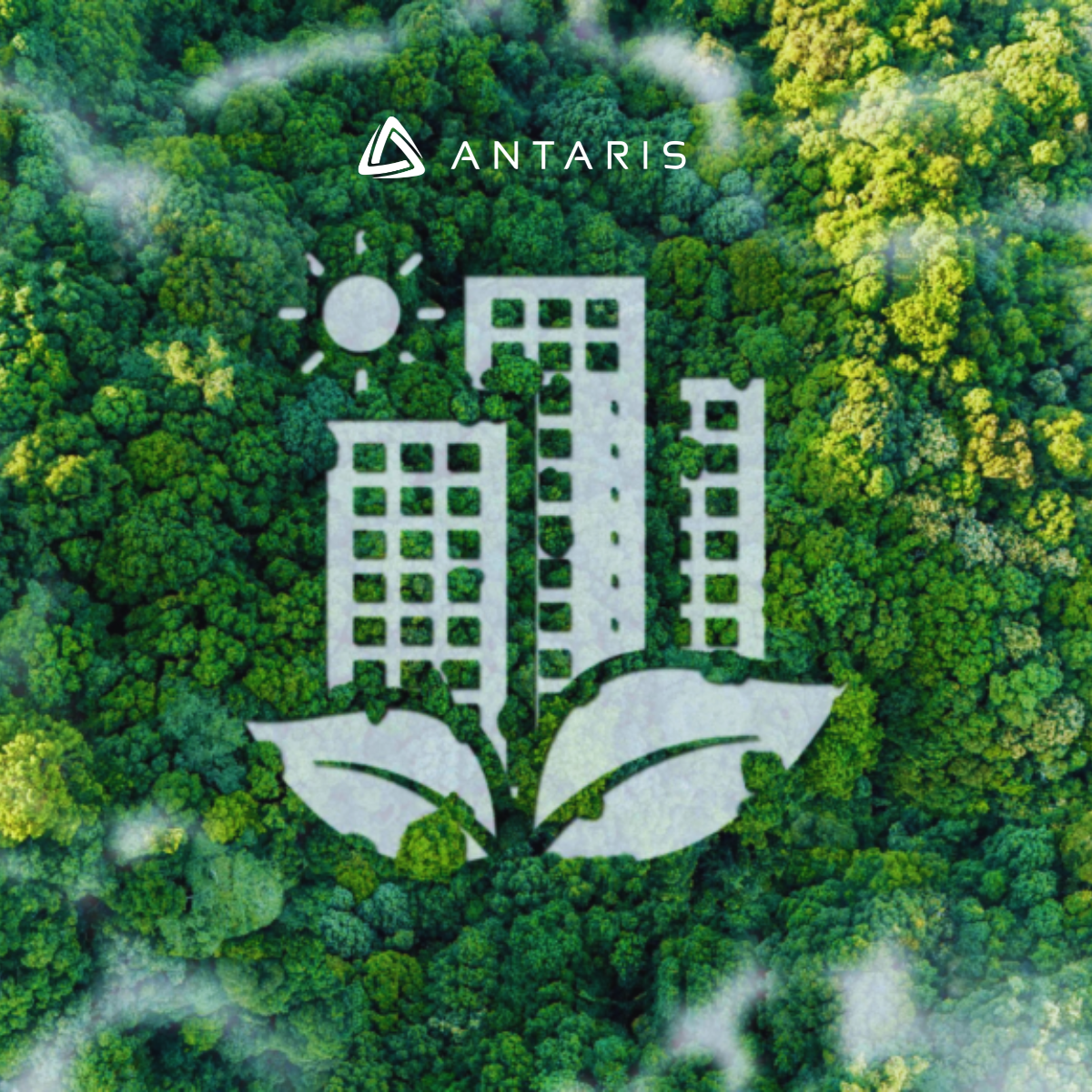The World Economic Forum’s (WEF) Global Risks Report 2024 was published on 10 January 2024. It assesses some of the most severe risks we are confronted with over the next decade, against a backdrop of rapid technological change, economic uncertainty, global warming and incipient and actual conflict.
The stark conclusion from the report is that the top four most severe risks facing the planet over the next 10 years are all related to the environment.
The report, which draws on the views of over 1,400 risk experts, lists extreme weather events, critical change to Earth systems, biodiversity loss and ecosystem collapse, and natural resource shortages as the top four threats over the next decade.
Extreme weather events are also ranked as the second most significant risk among the most severe short-term risks facing the world over the next two years.
The report accentuates a predominantly negative outlook for the world over the next two years that is expected to worsen further over the next decade.
Extreme weather events are categorised as loss of human life, damage to ecosystems, destruction of property and/or financial loss due to extreme weather events including land-based (e.g., wildfires), water-based (e.g., floods), and atmospheric and temperature-related events (e.g., heatwaves), including those exacerbated by climate change.
Critical change to Earth systems (also known as climate tipping points) is defined as long-term, potentially irreversible and self-perpetuating changes to critical planetary systems, as a result of breaching a critical threshold or ‘tipping point’, at a regional or global level, which have abrupt and severe impacts on planet health or human welfare. These include but are not limited to sea level rise from collapsing ice sheets; carbon release from thawing permafrost; and disruption of ocean or atmospheric currents.
Biodiversity loss and ecosystem collapse relate to severe consequences for the environment, humanity and economic activity due to destruction of natural capital stemming from a result of species extinction or reduction, spanning both terrestrial and marine ecosystems.
Natural resource shortages (such as food and water) encompass supply shortages of food or water for human, industry or ecosystem use. Manifesting as food and water insecurity at a local, regional or global level as a result of human overexploitation and mismanagement of critical natural resources, climate change (including drought, desertification), and/or a lack of suitable infrastructure.
The report is contextualised through four structural forces or domains that will shape the initiation and evolution of global risks over the next decade as follows:
- Issues relating to global warming and related consequences to Earth systems (climate change).
- Changes in the size, growth and structure of global populations (demographic bifurcation).
- Accelerating trends in technological innovation (technological acceleration).
- Evolution in the concentration and sources of geopolitical power (geostrategic shifts).
A new set of global conditions is forming across each of these domains and their transitory nature will be characterised by uncertainty and volatility. As societies seek to adapt to these changing forces, their capacity to prepare for and respond to global risks will be dramatically affected.
There is disagreement about the urgency of environmental risks, in particular biodiversity loss and ecosystem collapse and critical change to Earth systems. The private sector experts identify these risks as priority concerns over the longer term, in contrast to respondents from civil society or government who prioritise these risks over shorter time frames. This dissonance in perceptions of urgency vis a vis environmental risks among different constituencies, heightens the risk of missing key amelioration opportunities, which could result in long-term changes to planetary systems.
An unstable global order characterised by polarising narratives and insecurity, the worsening impacts of extreme weather, and economic uncertainty are causing accelerating risks – including misinformation and disinformation – to propagate. Misinformation and disinformation are ranked as the top short-term risk in the report, and fifth among the long-term threats. This is shown below:
A multipolar or fragmented world order is anticipated to take shape over the next decade, in which middle ranking and great powers contest and set – but also enforce – new rules and norms.
Furthermore, the report suggests that artificial intelligence (AI)-driven misinformation and disinformation and societal unrest will become pre-eminent amid elections in several major economies over the next two years.
It will take a relentless focus to build resilience at organisational, national and international levels in order to navigate this rapidly evolving risk landscape.



